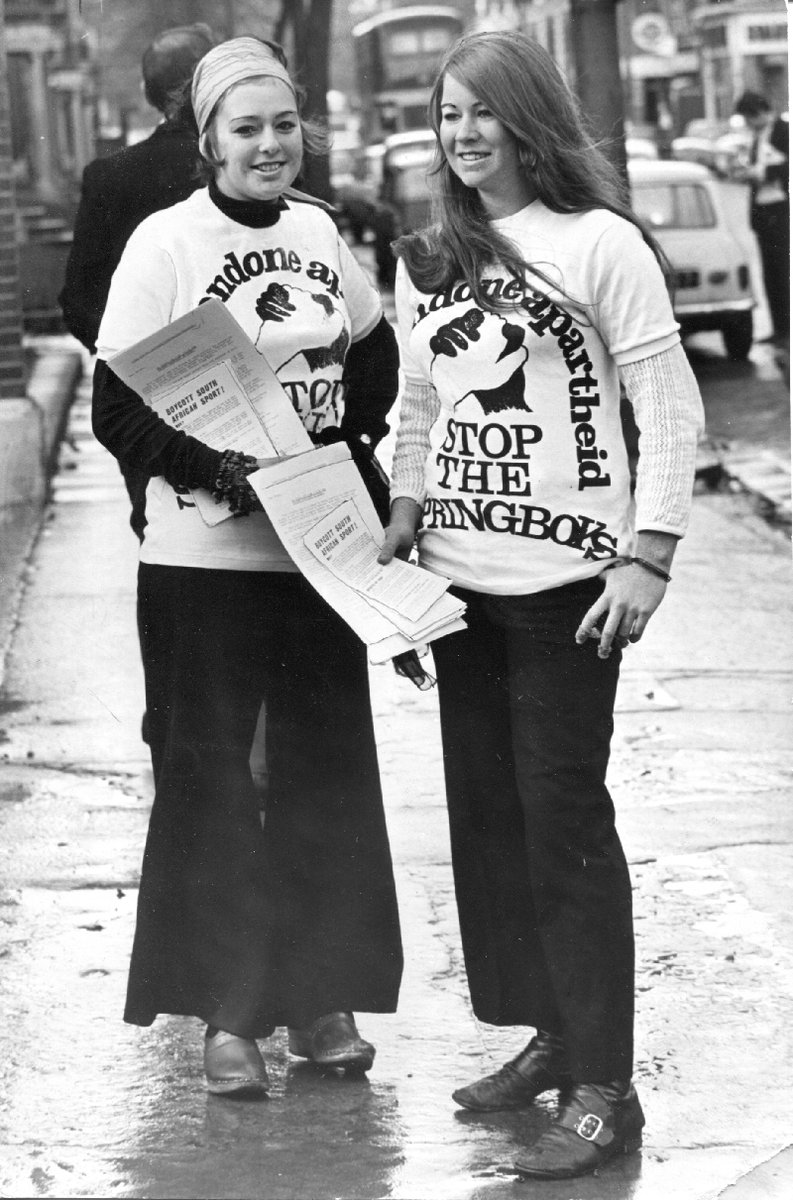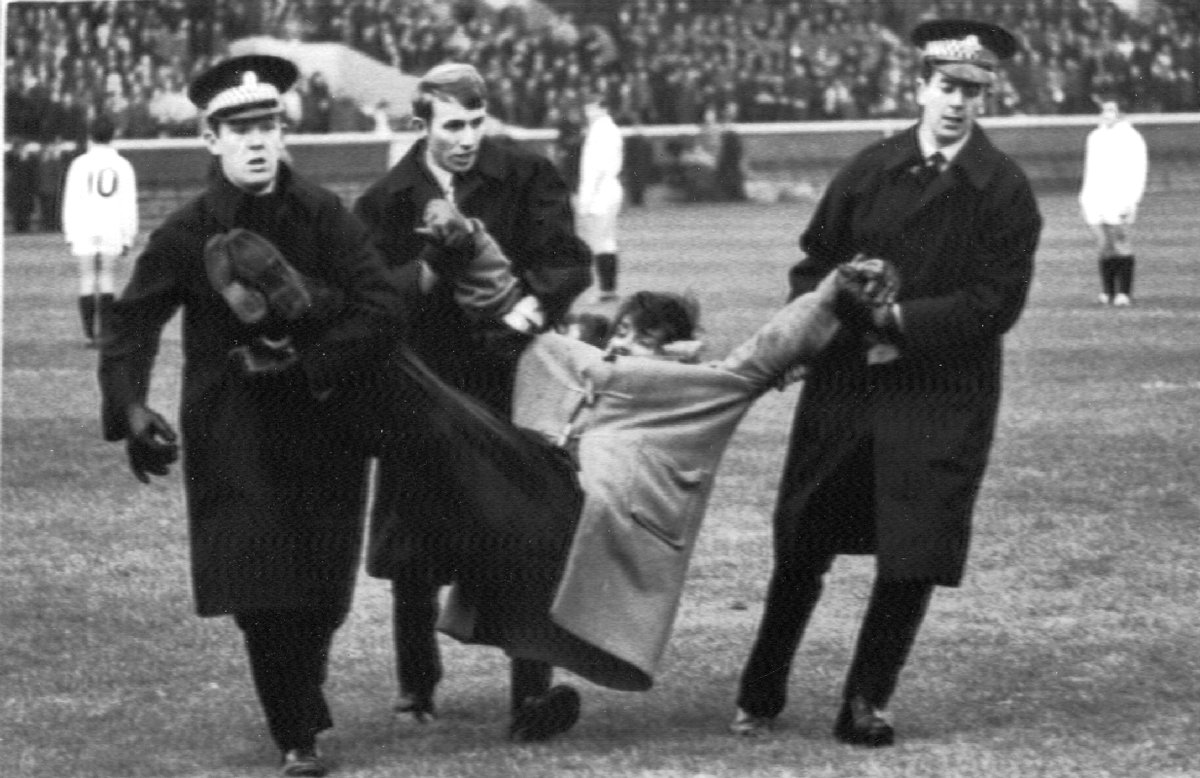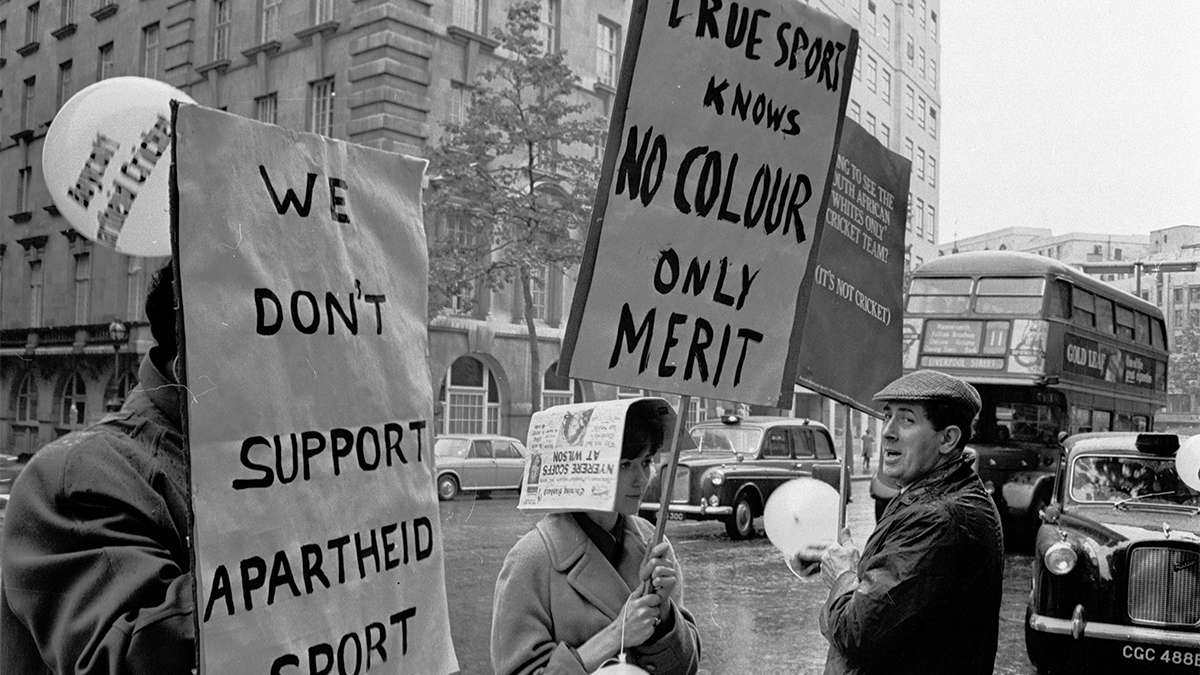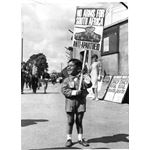
He makes the point that the civil disobedience that SST organised was "nothing on what the scale of what the South African State was doing to its majority black ciizenship under apartheid"
He goes on to describe sitting on cricket pitches, and painting (inoffensive) messages like 'Stop the Tour' on walls near cricket grounds
He does not seek to distance himself from actions like putting weedkiller on pitches, but emphasises that the group deliberately took non-violent direct action, as they wanted to keep the focus on the violence of the South African regime
He also told us about his time in the Pavement Collective - a project that he founded in 1970 - a local newspaper produced by a group of about 10 people.
He was on Pavement's editorial committee. He wants to know why a number of undercovers were sent to infiltrate Pavement - incl 'Jim Pickford' in 1976 and 'Michael Scott' as well.
He has a number of questions about this, and hopes the Inquiry will answer them.
He was also involved in Battersea Redevelopment Action Group (BRAG), a local grassroots group campaigning for affordable housing and community space.
He has been shown a report from December 1974 which mentions BRAG. He says it contains an inaccurate representation of the group's aims.
He recalled one "unsettling incident" - when somebody was excluded from a BRAG meeting - he now wonders if that person was an undercover.
More broadly, Rodker would like to know:
if other #spycops (not already disclosed) were in contact with him over the years?
how much they sought to disrupt or interfere in the campaigns that he was part of?
what was done with all the information that was gathered?
if other #spycops (not already disclosed) were in contact with him over the years?
how much they sought to disrupt or interfere in the campaigns that he was part of?
what was done with all the information that was gathered?
He was asked -by the @ucpinquiry - about violence. His response was to list some of the violence that he encountered - almost entirely from the police.
@ucpinquiry In his wordsd: "Sometimes their physicality was quite severe. They dragged people by the hair, 'accidentally' stamping on people when trying to move them..."
@ucpinquiry "I was occasionally stamped on. I witnessed others being stamped on or pulled by their hair"
He makes the point that
"All of our actions were passive forms of civil disobedience, such as laying on the road"
He makes the point that
"All of our actions were passive forms of civil disobedience, such as laying on the road"
@ucpinquiry He was very disturbed to find out about the very personal details recorded about him by the #spycops and Special Branch.
"I find it sinister and invasive and it troubles me greatly to learn of it, even after all this time"
"I find it sinister and invasive and it troubles me greatly to learn of it, even after all this time"
@ucpinquiry The Inquiry has now uploaded some of the documents that Ernest is referring to, including ucpi.org.uk/publications/s… and ucpi.org.uk/publications/s…
@ucpinquiry This is a report of a meeting not just attended but chaired by one of the #spycops 'Jim Pickford'
ucpi.org.uk/publications/s…
ucpi.org.uk/publications/s…
@ucpinquiry And this one is about the Stop the Seventy Tour campaign: ucpi.org.uk/publications/s…
@ucpinquiry They protested at rugby as well as cricket matches - see this report ucpi.org.uk/publications/m…
@ucpinquiry Rodker was prosecuted following an action (to block a rugby team bus from moving) in the carpark of the 'Star & Garter' ucpi.org.uk/publications/m…
@ucpinquiry We are shown some photos from the time.
ucpi.org.uk/publications/p…
Rodker did not know that 'Michael Scott' was an undercover when he went to trial.
ucpi.org.uk/publications/p…
Rodker did not know that 'Michael Scott' was an undercover when he went to trial.
@ucpinquiry ucpi.org.uk/publications/s…
It is clear that the #spycops and their managers knew that the defendants in this case were not guilty
It is clear that the #spycops and their managers knew that the defendants in this case were not guilty
@ucpinquiry Rodker was extremely concerned to find out, many years later, that one of his co-defendants in this case was an undercover. This means that this person attended legal meetings between the defendants & their lawyers, and gave evidence/ was convicted under a false name
@ucpinquiry Elsewhere, he noted that one report described him as "a thorn in the flesh for several years now"
He does not accept this characterisation of himself and says that the language betrays both a lack of judgement on the part of the police & a lack of respect for the right to protest
He does not accept this characterisation of himself and says that the language betrays both a lack of judgement on the part of the police & a lack of respect for the right to protest
@ucpinquiry He has been made aware of other documents that are now in the public domain - but not given to him by the Inquiry - dating back to 1970. He is named in these reports.
@ucpinquiry Some of these show him to be a thoughtful and principled activist - for example covering the sides of mirrors with tape so they wouldn't pose a risk to anyone - but he worries that the Inquiry has not seen all of the documents
@ucpinquiry Mitting thanked Oli for reading out hsi father's work. Mitting said that the Inquiry had given Ernest all the material they had that mentioned him by name, but this wouldn't include all Special Branch material as he was just focussing on one small unit within the Branch.
@ucpinquiry Mitting also explained that he had a duty to refer any potential miscarriage of justice to a Panel, & it sounded like that might well be the case here (with the Star & Garter case).
Would he rather this was done immediately or at the end of the Inquiry? <in about 5 years time?!>
Would he rather this was done immediately or at the end of the Inquiry? <in about 5 years time?!>
@ucpinquiry Oli reiterated that his father was elderly and in ill-health, which is why he hadn't appeared himself today.
He told Mitting that "it would certainly ease his mind to know that things were proceeding as promptly as possible".
He told Mitting that "it would certainly ease his mind to know that things were proceeding as promptly as possible".
@ucpinquiry The hearing then ended for the day. You can watch it all at
@threadreaderapp unroll if you please
• • •
Missing some Tweet in this thread? You can try to
force a refresh








